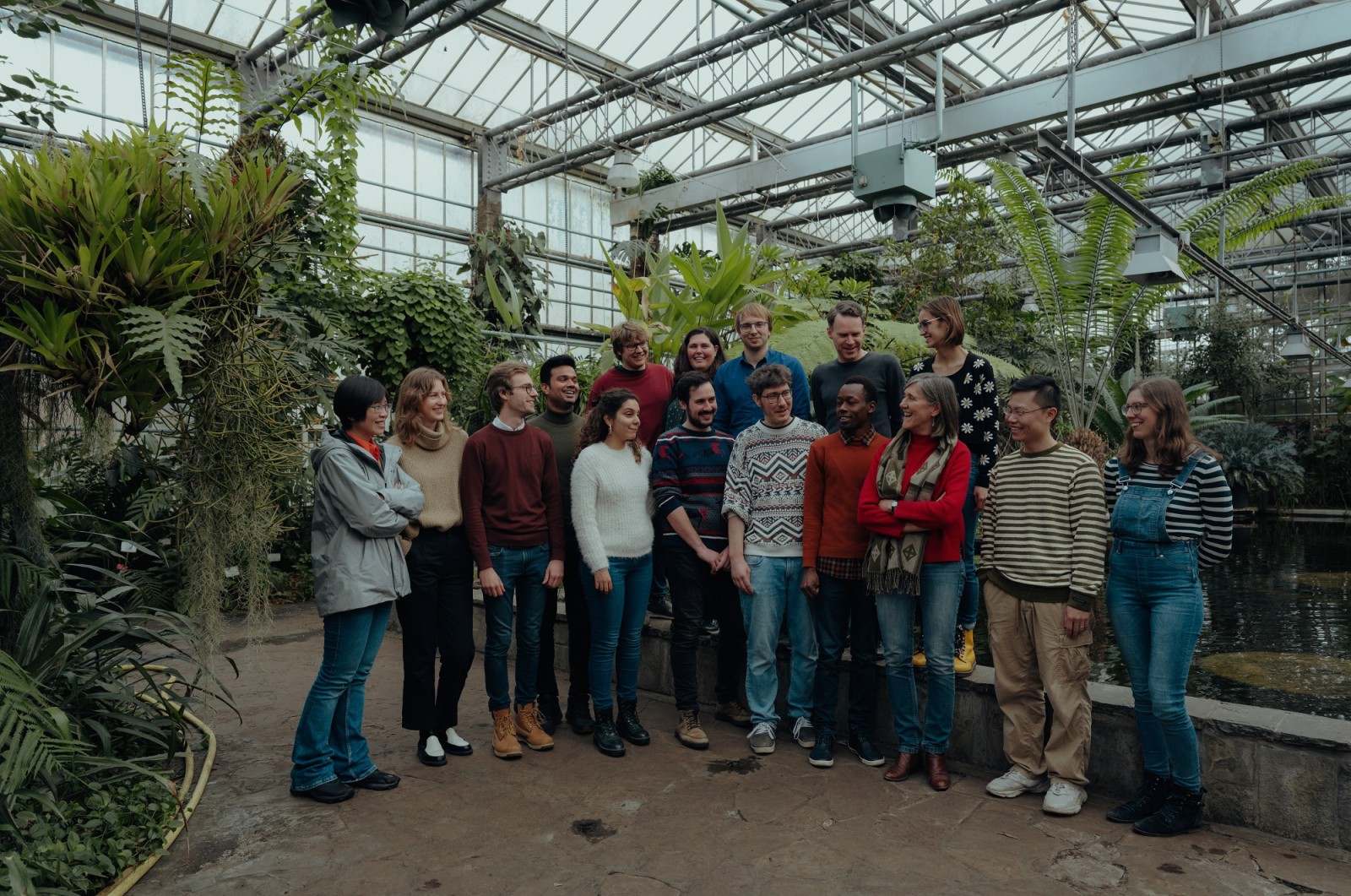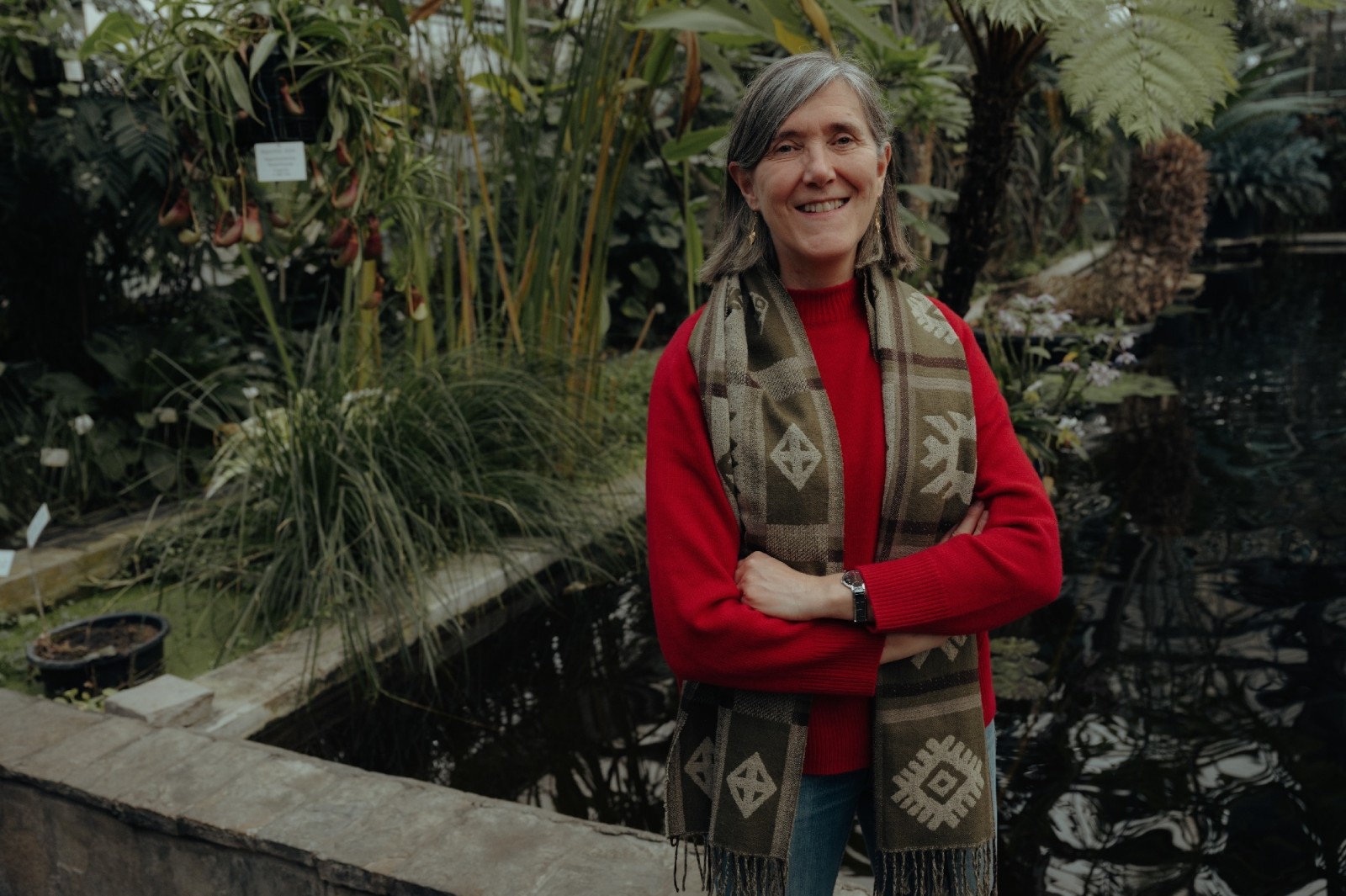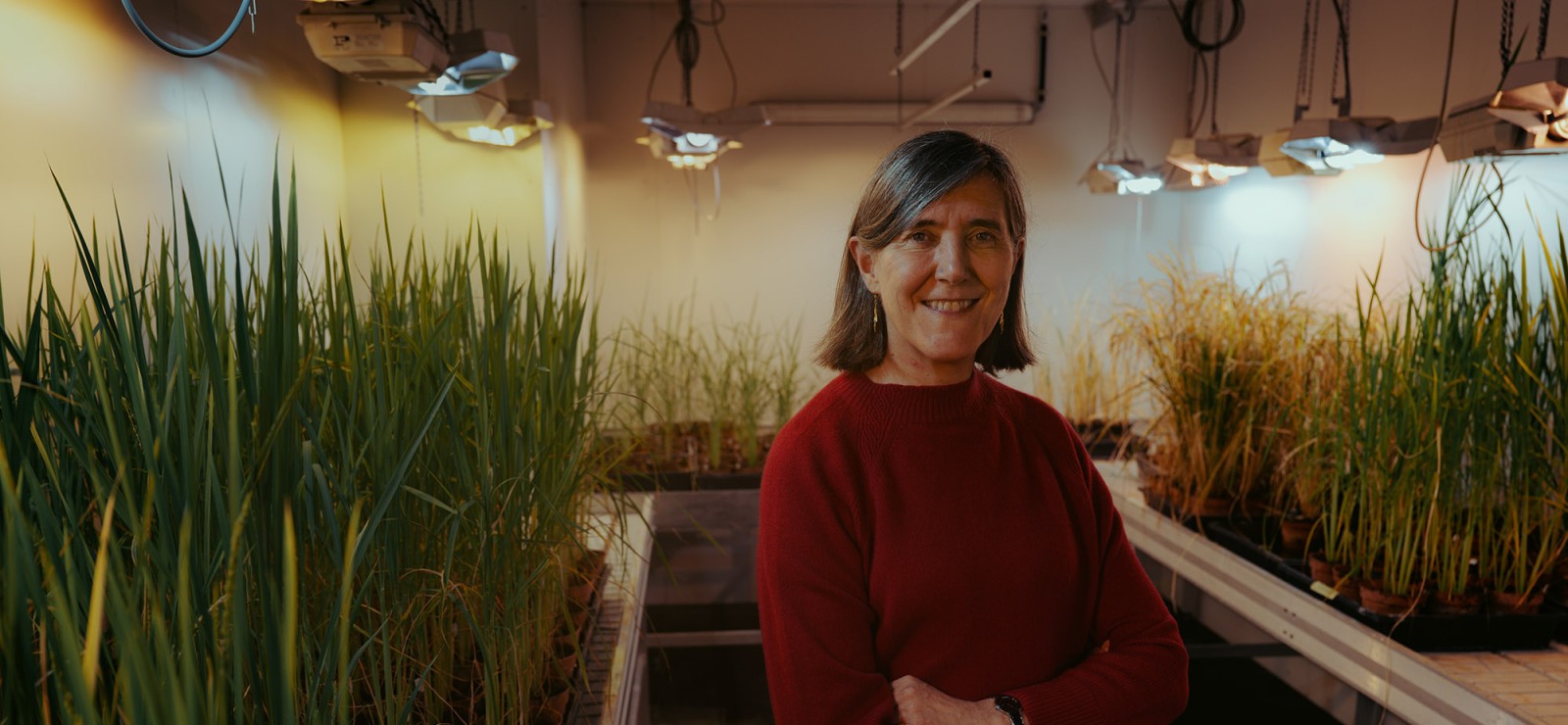From now on, Professor Dominique Van Der Straeten can call herself a fellow of the prestigious American Association for the Advancement of Science (AAAS). This international recognition honours researchers who are making an invaluable contribution to science and its application. In the case of professor Van Der Straeten, it recognises her research, which aims to reduce ‘hidden’ hunger and the consequences of climate change.
She wants to banish hunger from the world, spent some time working at Harvard University, and her scientific fathers are Marc Van Montagu (Ghent University) and Howard Goodman (Harvard University). Professor Dominique Van Der Straeten is a global authority on plant biology. This recognition from the AAAS only confirms it. The AAAS is one of the largest scientific organisations in the world, and, among its activities, is the publisher of Science, the renowned scientific journal.
Alongside Einstein
The particularly impressive list with AAAS fellows features names such as Thomas Edison, Albert Einstein and Martin Luther King. And they were recently joined by Dominique Van Der Straeten. The fact there are few Belgians entitled to call themselves a fellow also makes this quite remarkable. “I am deeply honoured by this distinction”, she confirms. “But in fact, it is merited by my entire research team. A scientist never works alone. In most research, a whole group is involved.”
Together with this research group she is trying to utilise expertise on plant physiology and genetic modification in order to solve social issues. Such as malnourishment. Dominique: “I am battling to rid the world of hunger, and focusing very specifically on so-called hidden hunger. That is a really huge problem worldwide.”

Dominique Van Der Straeten: ”In fact, this is merited by my entire research team. A scientist never works alone. In most research, a whole group is involved.”
The battle against hidden hunger
No less than one in four people in the world suffer from hidden hunger. Despite consuming sufficient quantities of food, they lack vitamins and minerals. “You hardly see these deficiencies, but they end up causing serious illness”, says Dominique. “I want to deal with that problem as effectively as possible. How? By adapting the product itself. What the farmer sows, in other words.”
Using genetic modification, it is possible to increase the nutritional value of crops, Dominique and her team discovered. In 2007 and 2015, Nature Biotechnology published her research results, which were already impressive back then. “We had discovered a way of adding folate (vitamin B9) to rice, as one of the most popular crops among poorer groups in the population. It was successful: one cup of this rice was sufficient to satisfy the daily requirement of pregnant women, who need it the most.”
Golden rice
It was the development of so-called ‘golden rice’, designed by professor Ingo Potrykus at ETH Zürich, that gave her the inspiration. Potrykus added the genetic code for provitamin A (beta-carotene) production to rice. This gave it a yellow colour, and more importantly: the rice contains vitamin A. Dominique: “That golden rice can already be found on a large scale in the Philippines, and perhaps soon in Bangladesh too.
Together with colleagues from Portugal and Switzerland, she is currently investigating how you can not only add enough vitamin A, but also vitamin B9 and iron to such a portion of rice. Dominique: "That would help solve the global problem of anaemia."
Searching for the social link
“In each research question I always look for a strong social link”, she explains. “And then I go in search of partners who can add value in achieving the goal.” In doing so, her research goes beyond combating hidden hunger. “Our research into imaging technology among plants, for example, helps farmers to identify disease, even before it can be seen with the naked eye. In this way, diseased plants can be removed before they infect other plants. This technology is the basis in apps allowing you to recognise plant disease, among other things.”
A shot of ethylene
The motivation of the AAAS highlights not one, but the combination of research domains as the reason for her appointment. Definitely worth mentioning: her expertise concerning the stress hormone ethylene, which influences the development and growth of plants.
Dominique: “The stress hormone ethylene causes flowers to wilt. Also, unripe fruit ripens faster when placed in the fruit bowl with bananas, because they release a lot of that hormone. Partly thanks to my research, horticulturists and farmers can prevent the formation of this stress hormone – which means that their flowers and plants last longer.”
“I cloned genes which contain the information to create that hormone. Using this knowledge, it is possible, among other things, to transport fruit when it is unripe, and therefore much less vulnerable, and store it for longer. Thanks to a shot of ethylene, the fruits only ripen upon reaching their destination.”
Resistant to climate change
Ethylene was once the subject of her doctoral study, promoted by professor Marc Van Montagu, co-founder of biotechnology. “And I am still busy with it now. For example, we are currently studying the role of that hormone in floods, which are increasingly occurrent. Together with my colleagues, I am trying to find out how we can make plants more resistant to climate change.”
Whether the appointment opens doors for her or not, in fact she never lets the boundaries of a department or university stand in her way. Dominique: “Even though you have a good idea as a scientist, it can only grow in discussion with others. I hope that interdisciplinary research will continue to flourish in the future. Because you do not conduct excellent research alone, nor within the boundaries of your own knowledge domain.”

Professor Dominique Van Der Straeten did her doctorate in the lab led by professor Marc Van Montagu, global pioneer in biotechnology. She spent 15 months in Harvard University for her doctorate. For years, she worked as research director at the FWO. Today, she is full professor in plant physiology at Ghent University and research director at the Laboratory of Functional Plant Biology.
Read also
This is how to avoid parasites on holiday
Holidays! You're already looking forward to all the delicious things you'll eat while travelling, but wait ... Can you just eat anything? "There are some foods that you need to be a bit careful with.” Professor Sarah Gabriel tells us how to avoid taking an extra passenger back home
“If we want to feed nine billion people in 2050, we’ll have to look to the sea.”
Marine biologist and Professor Emeritus Patrick Sorgeloos (Faculty of Bioscience Engineering) was instrumental in shaping modern aquaculture in recent decades. If his career has taught him one thing, it is that aquaculture has a crucial role to play in continuing to ensure food security. “By 2050 more than half of our food must come from the sea. And it’s possible.”
Aurèle supports fund for Botanical Garden: a tribute to his mother
After his mother passed away, Aurèle De Vos decided to commemorate his mother by establishing a fund and donating to the Botanical Garden. Its purpose is to help the Botanical Garden protect rare and endangered plants.
How best to keep your chocolate cool in summer?
If you have a sweet tooth, you’ll know how difficult it is to keep chocolate cool during the summer months. So where should you store it? In a cupboard or in your fridge?




